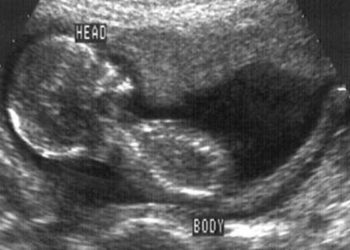Adolescent risk behavior screening and interventions infrequently provided in hospital settings
1. In this scoping review, adolescents were only assessed with a comprehensive screening for risk taking behaviors approximately 10% of the time across emergency departments, hospital settings and urgent cares.
2. Adolescents, clinicians, and parents were receptive to risk behavior screening and interventions, with some barriers noted, including time constraints, privacy concerns, and lack of clinician education.
Evidence Rating Level: 3 (Average
Study Rundown: Risk-taking behaviors are common during adolescence and can significantly impact adolescent health and safety. Prior studies have indicated that performing a comprehensive risk behavior screening analysis with appropriate interventions can improve health outcomes and mitigate risk. This scoping review aimed to evaluate risk behavior screening, interventions, and attitudes towards screening in urgent care, emergency department and hospital settings for adolescents aged 10-25. Overall, there were low rates of comprehensive screening and interventions performed. Parents, adolescents and clinicians were generally receptive to screening and interventions, however barriers were noted, such as time constraints, lack of knowledge, and privacy concerns by the adolescents. Conclusions from the current study are limited by the heterogeneity of studies, with the vast majority of studies categorized as moderate to high risk of bias, as well as the limited generalizability of findings considering each study in the scoping review was confined to a single center. Despite these limitations, the findings of this scoping review are still significant in suggesting there is a need to improve uptake of risk behavior assessment of adolescents in hospital-based locations.
Click to read the study in PEDIATRICS
Relevant Reading: Adolescent satisfaction with computer-assisted behavioral risk screening in primary care
In-Depth [scoping review]: In this scoping review, a comprehensive literature search identified 45 articles which met the inclusion criteria, of which 38 took place in the emergency department, 7 took place in the hospital setting, and 1 took place in urgent care. Individuals aged 10-25 years were included in the review. Studies that included adolescents who were characterized as being high-risk, as well as interventions that took place outside of a hospital environment were excluded. The primary objective of the study was to evaluate the current body of literature on risk behavior screening and interventions for adolescents in a hospital-based setting. Across studies, comprehensive screening was performed in 10-16% of patients, with incomplete/partial screening performed in 28% of patients. When behavioral risks were identified, 75% of patients were provided with interventions. Sexual health screening was infrequent (55-62%) and often incomplete, while screening rates were unknown for mood and suicidal ideation, substance use, and abuse and violence. Health promotion advocates and physician reminders were found to improve the rates of screening.
Image: PD
©2021 2 Minute Medicine, Inc. All rights reserved. No works may be reproduced without expressed written consent from 2 Minute Medicine, Inc. Inquire about licensing here. No article should be construed as medical advice and is not intended as such by the authors or by 2 Minute Medicine, Inc.







![Maternal cell-free DNA sequencing superior to standard aneuploidy screening [CARE Study]](https://www.2minutemedicine.com/wp-content/uploads/2014/02/47-karyotype-75x75.jpg)